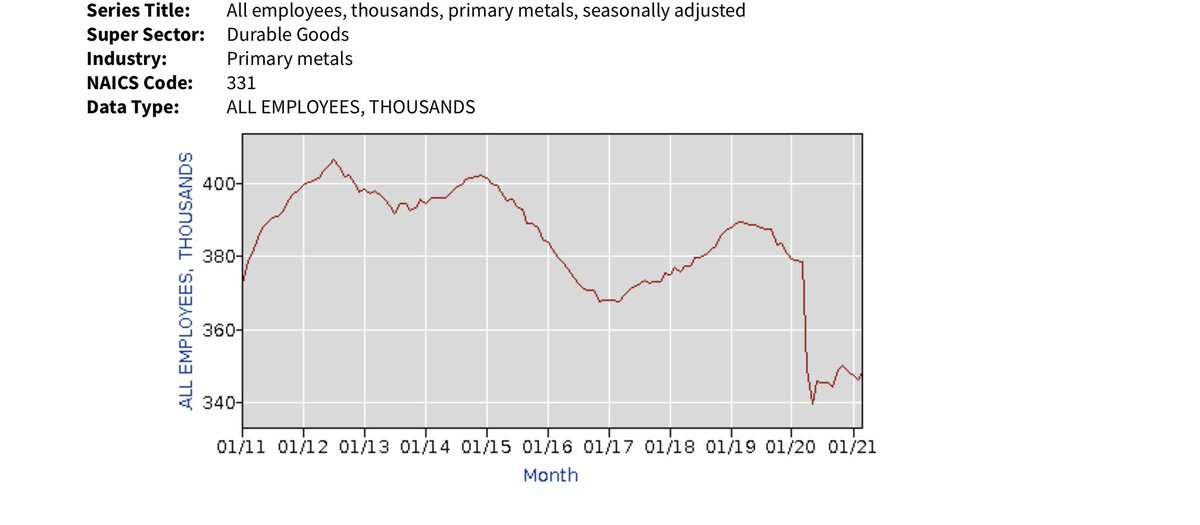
Dems seem likely to vote on @POTUS' $1.6tn #BuildBackBetterAct today. One thing missing: Reform of the unemployment system.
Why does that matter? @economics dived into what happened in Georgia to 2.25m claims filed in the first year of the pandemic.
bloomberg.com/graphics/2021-…

Why does that matter? @economics dived into what happened in Georgia to 2.25m claims filed in the first year of the pandemic.
bloomberg.com/graphics/2021-…


The data we got show Black workers were more likely than White ones to be denied unemployment benefits in Georgia. As much as twice as likely...
bloomberg.com/graphics/2021-…
bloomberg.com/graphics/2021-…

Georgia’s labor force has roughly 2x as many White workers as Black ones. But more Black workers filed for unemployment than White ones.
In the end 35% of the >900k Black workers who applied for help in the year after March 2020 did not get any.
In the end 35% of the >900k Black workers who applied for help in the year after March 2020 did not get any.
If the unemployment system mirrored the workforce, the number of White workers denied unemployment would be roughly 2x the number of Black workers.
But it was actually the opposite. Among Georgia workers denied regular state unemployment, 53% were Black and 24% were White.
But it was actually the opposite. Among Georgia workers denied regular state unemployment, 53% were Black and 24% were White.
Some things did work. Sort of...
Federal Pandemic Unemployment Assistance aimed at those normally left out of the system helped close the racial gap in Georgia. But that also meant that when @GovKemp in June withdrew early Black workers suffered a disproportionate impact.

Federal Pandemic Unemployment Assistance aimed at those normally left out of the system helped close the racial gap in Georgia. But that also meant that when @GovKemp in June withdrew early Black workers suffered a disproportionate impact.


Important point: The US mounted a historic response to the economic crisis caused by the pandemic. But the safety net used - and what's left behind - has huge holes in it.
Earlier this year we found >9m people did not get the help they sought.
bloomberg.com/news/features/…
Earlier this year we found >9m people did not get the help they sought.
bloomberg.com/news/features/…
Tenel Belcher, a former Atlanta transit worker, waited 5 months to find out her application was denied. She didn’t hear about the status of her appeal for 10 more months. And then only after Bloomberg asked @GeorgiaDOL about her case. 

Kenny Grigsby was scratching out a living officiating at high school & collegiate games before the pandemic. When sports shut down so did his income. He was denied regular unemployment because he's a freelancer and told he qualified for PUA. He's still waiting for benefits. 

If you look at metro Atlanta it's striking how denial rates match up with demographics. Predominantly Black zip codes saw a denial rate for regular state benefits as much as 2x that of White zip codes.
The map on left is denial rates. The one on right is % Black population.

The map on left is denial rates. The one on right is % Black population.


Again, as @pelhamprog says, leaving UI reform out of #BuildBackBetterAct has consequences.
“Congress has not taken any kind of lesson that there’s something wrong with the core program. So now we’re back to a place where the system is once again incredibly inequitable.”
“Congress has not taken any kind of lesson that there’s something wrong with the core program. So now we’re back to a place where the system is once again incredibly inequitable.”
PUA “was an anti-racist tool,” says Ray Khalfani, an analyst at @GaBudget. “It opened the window to a lot of workers who had been denied access to unemployment benefits.”
“We can’t afford to be in this type of place again in another recession,” he says.
“We can’t afford to be in this type of place again in another recession,” he says.
Anyway, read our story and share it. @readep, @madcampb and lots of other folks at @economics @business & @BBGVisualData worked hard on this project. We felt it was an important story to tell...
bloomberg.com/graphics/2021-…
bloomberg.com/graphics/2021-…
One PS :
We didn't set out to focus exclusively on Georgia. @readep and I wanted to examine who did and who didn't get unemployment benefits in the pandemic.
And what we discovered is that the demographics of who didn't is a blind spot in the data.
bloomberg.com/news/articles/…
We didn't set out to focus exclusively on Georgia. @readep and I wanted to examine who did and who didn't get unemployment benefits in the pandemic.
And what we discovered is that the demographics of who didn't is a blind spot in the data.
bloomberg.com/news/articles/…
A great animated zoom through the numbers from @rachaeldottle...
https://twitter.com/rachaeldottle/status/1461715807403077635
• • •
Missing some Tweet in this thread? You can try to
force a refresh











